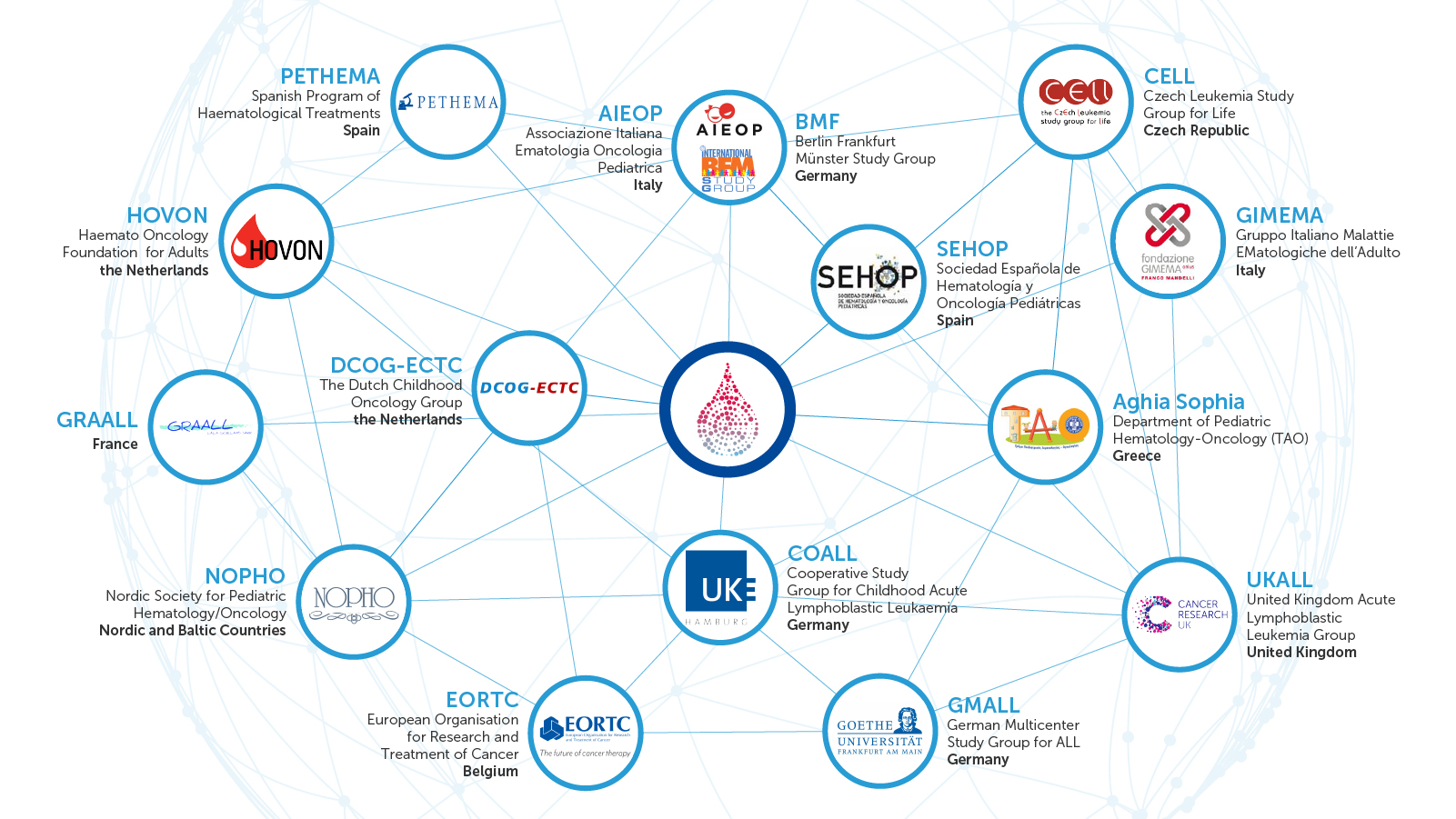Home> Research Projects> ALL 1: Use of Big Data to improve outcomes for patients with Acute Lymphoblastic Leukemia
The initiation and progression of Acute Lymphoblastic Leukemia (ALL) is regulated by a wide spectrum of chromosomal and genetic abnormalities. Despite excellent prognosis in children and young adults with ALL, the situation in older adults (>25 years) is more challenging and there is a need to improve the risk stratification algorithms to optimize patient treatment and outcomes.

Acute lymphoblastic leukemia (ALL) is a rare disease most often seen in children. For those individuals aged ≤24 years the prognosis is good, with 5-year event-free survival above 80%, and as high as 90% in children. However, the situation in adults >25 years is more serious as increasing age is associated with poorer prognosis. There is a need to further improve risk stratification for adult patients with ALL in order to avoid over- or under-treatment, and to ensure rapid identification and appropriate management of those with high-risk disease.
Large datasets derived from patients with ALL are required to assist in the identification and validation of biomarkers to enable risk stratification of patients. The HARMONY Big Data Platform provides the opportunity to formalize existing pan-European collaborative working and so draw data from a range of countries in order to analyze biomarkers in a cohort of at least 5,000 patients with ALL. Countries that will form part of the HARMONY Alliance for this project include The Netherlands, Nordic countries (such as Sweden, Denmark, Finland, Iceland and Norway), France, Belgium, Germany, Austria, Switzerland, Spain, Portugal, The Czech Republic, and Italy.
Such a large patient cohort will offer the opportunity to examine potential biomarkers, to validate their utility and to consider their interaction with patient outcomes. Data from several randomized, controlled clinical trials will form the basis for the dataset. By drawing on data from clinical trials, it will be possible to fully elucidate the relationship between potential biomarkers and outcomes from different therapeutic strategies.
The key objective of this project is to gain a detailed knowledge of the incidence of genetic abnormalities within adult patients with ALL, and to examine how these abnormalities interact. In addition, in pediatric ALL, this project will seek to refine existing risk factors to identify patients who could be considered for treatment de-intensification. In the short-term, this should guide therapeutic decisions by identifying those patients most in need of treatment with intensive chemotherapy. Longer-term, the aim is to generate an integrated risk model that can be applied to each patient with ALL, thereby enabling clinicians to make more personalized treatment decisions. Ultimately, it is hoped that this risk model will provide clinicians with a single score for each patient with ALL that is able to accurately predict the likely outcome for that individual if treated with a particular therapeutic option.